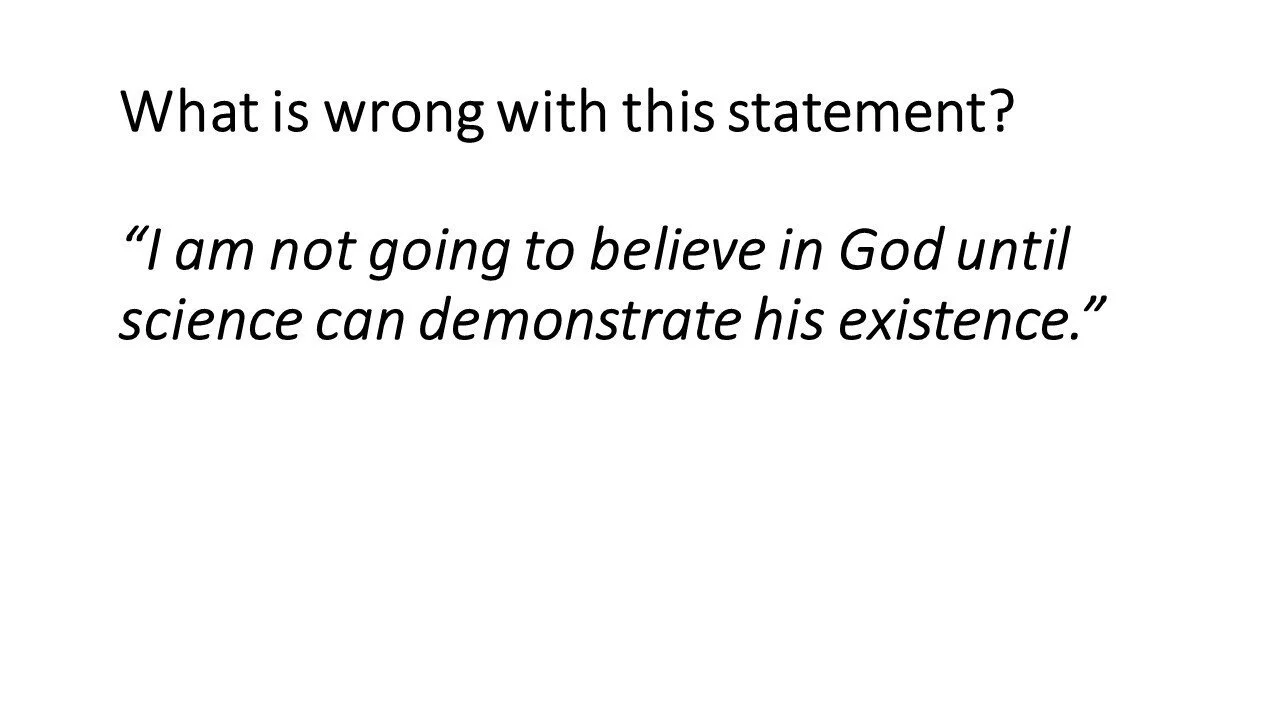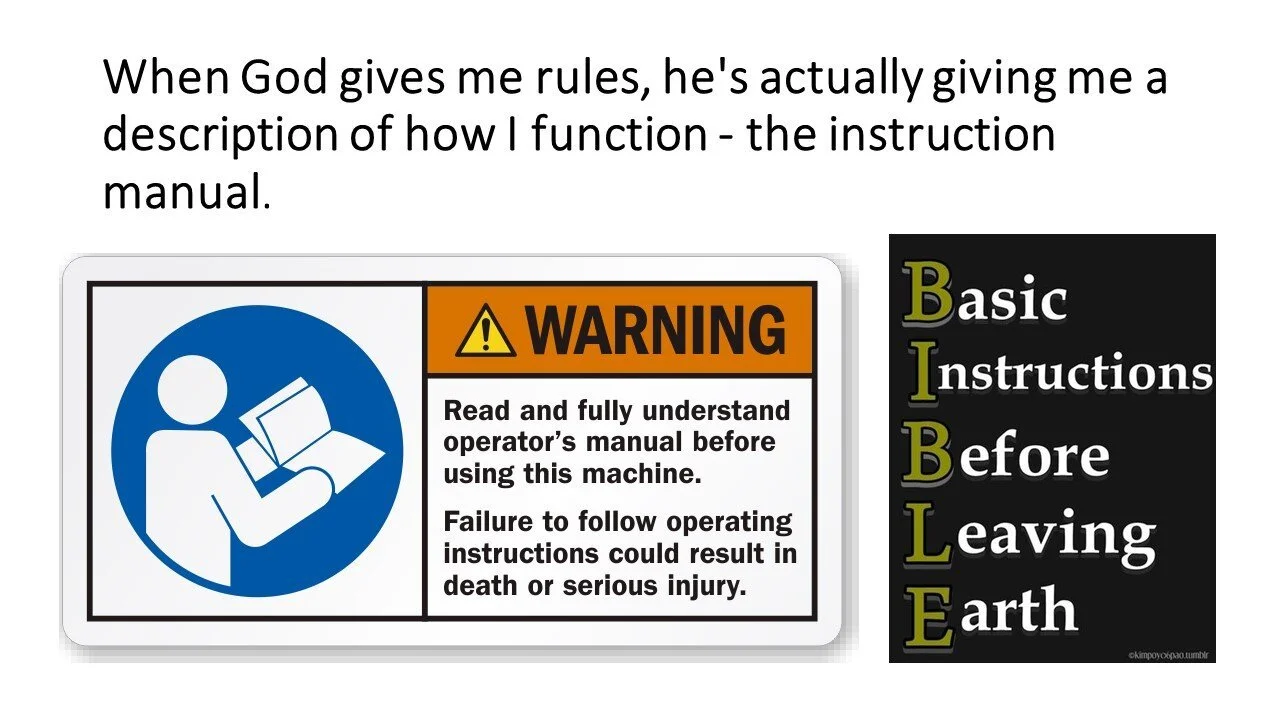
ANSWERING ATHEISM
1st Course: Why Would Anyone Believe in God?
Brought to you by Deacon Mark Friedlein, Terri Thomas and Holy Family School of Faith. Learn more about School of Faith here.
Audio, Video & Handouts (scroll down to the bottom of the page for links to articles about answering atheism, redemptive suffering and more)
For each of the 4 talks in this course, there is an mp3 audio file (of Sebastian D’Amico) for you to listen to and a handout for you to follow along with. For the first three talks there is a video presentation by Deacon Mark Friedlein or Terri Thomas. There is no handout for the third talk.
The power point slides are included after each of the handouts for each of the talks.
SCHOOL OF FAITH INSTRUCTOR for 1st Course: Why Would Anyone Believe in God?
Sebastian D'Amico
785-393-2623
sebastianschooloffaith.com
Sebastian has been a Catechist at St. James Academy since 2005 where he has been part of the theology faculty. He graduated from the University of Kansas in 2004 with a degree in English and Spanish education and received a certificate of Catechesis from the St. Lawrence Catholic Campus Center. He completed his Master’s degree in Biblical Theology from the Augustine Institute. He has been an adjunct professor for School of Faith since 2011 and a full time since 2014. He and his wife Victoria and 4 children reside in Overland Park, KS.
Lesson 1: Ways of Knowing and the Issue of Reductionism
The following testimony (From SSA to Glory) would fall under #2: Experience & Observation.
Below is another wonderful testimony of how the “experience” of Eucharistic Adoration changed a young girl’s life forever! Listen to St. Josemaria and the Eucharist.
Below are the PPT slides for this talk. Use the arrow on the right to advance the slides.
Lesson 2: What We Mean by God and Answering Some Objections
At the end of this audio talk, Sebastian talks about classical objections to God's existence.
The audio cuts off before he gives some possible answers. Read the handout below for the possible answers. The possible answers are also included in the ppt slides below.
Below are the PPT slides for this talk. Use the arrow on the right to advance the slides.
Lesson 3: Some Proofs from the Universe
Below are the slides from Talk 3: Some Proofs from the Universe
Lesson 4: Some Psychological Arguments for God & Why There Is Suffering
Sebastian D'Amico
Below are the slides from Talk 3: Some Proofs from the Universe
Handouts on Why God Would Allow Us to Suffer
Links to Articles about the Great Things that God Brings out of Our Suffering If It Is United to Him:
Motives for Atheism
Not all atheists are the same, and not all atheists are atheistic for the same reason. But given the rise in unbelief among us, it’s useful to examine some of those reasons. So here is a list – in no particular order and doubtless incomplete – of some currently notable motives for atheism. Note, too, that an individual may simultaneously have more than one of these motives.
Unsuccessful search. Some atheists honestly claim that they have examined many of the arguments for the existence of God that have been offered and have found them unconvincing.
Intellectual laziness. Others dishonestly mimic the foregoing. They claim to have examined the arguments for God’s existence and found them wanting. But they are lying. These people are intellectually lazy. They have done little or no examination of the many arguments. But they are embarrassed to admit that. So they tell themselves and others that their atheism has been honestly arrived at.
Extreme empiricism. Some people, holding an epistemology that doesn’t admit the possibility of knowledge not solidly grounded on sense experience, conclude that it’s no more possible to prove the existence of God than to prove the existence of elves and fairies.
The problem of evil. Many find it impossible to reconcile the immense amount of pain and suffering found in the world with the idea that the world is the creation of a supreme being who is all-knowing, all-powerful, and all-good.
Indignation at evil done by Christians. Some atheists are ever-mindful of the crimes committed by Christians over the last 2,000 years – a long history of anti-Semitism culminating in the Holocaust, the Crusades, the Spanish Inquisition, the Index of Prohibited Books, the trial of Galileo, the execution of witches, the Catholic-Protestant wars of religion, and (to bring us up to date) the sexual molestation of minors by Catholic priests. Atheists of this kind inflict a kind of retroactive justice on these wicked Christians by refusing to believe in God.
Hatred of Christianity. Rather similar to the atheists just described, but not precisely the same, are atheists who hate Christianity even apart from the many crimes committed by Christians. These atheists (Nietzsche was a good example) hate Christianity in its very essence. And so they deny the existence of God. For if God doesn’t exist, Christianity has no foundation.
*Another Nietzschean reason. Nietzsche held that the best human life is not, as Englishmen and economists believed, a life of ease, comfort, and pleasure. No, the best life is the “strenuous life.” This name, of course, didn’t come from Nietzsche, but from Theodore Roosevelt. But the two men had a shared contempt for a life of ease. They preferred a life of struggle, challenges, the overcoming obstacles. Nietzsche saw Christianity as a religion of weaklings who loved nothing so much as pleasure (even though they rarely had much of it in this life), and who dreamed that in Heaven they would live lives of unlimited comfort.
Another Nietzschean reason. A world without God is more dangerous and difficult than a world looked over and – in the last analysis – safeguarded by God. But a dangerous and difficult world is (from Nietzsche’s point of view) a better world. Therefore, God does not exist.
The individual as absolute. If God exists, I am not the highest and most important thing in existence. Therefore, God does not exist.
Human responsibility. Some atheists (Marxists especially) hold that belief in God tends to reduce a sense of human responsibility. If God exists, let him take care of the world; we can relax. But if there is no God, then the responsibility falls clearly on our shoulders to make this an ever-better world. Therefore, we must do away with belief in God.
Idols. Some people have a “religious” devotion to a person (e.g., Hitler, Stalin, Mao), or a political party (Communist or Nazi), or to a social cause (feminism, LGBTQ-ism) that is so totally absorbing that they have no psychological room left for belief in God. So they deny the existence of God.
Peace of Mind. The most famous atheist of the ancient world was Epicurus; his strongest argument for atheism was that it brings peace of mind. The atheist is superstition-free. Confident that there are no powers beyond the world of nature, he doesn’t have to fear that he will be punished by dark and invisible powers for his sins (or virtues) either in this life or the next. Nowadays, of course, when much popular religion holds that God is a nice guy who wouldn’t hurt a fly, most people probably feel little need for the comfort that Epicurean atheism would give. But if your upbringing involved a more or less Calvinistic God, even today you might find it comforting to believe that God doesn’t exist and that you don’t have to face the possibility of spending eternity in Hell.
Conspicuous nonconformity. Some persons embrace atheism for the same reason that others get tattooed – they want to be “different.” This is especially the case with adolescents. But this motive sometimes manifests itself in persons who are, at least chronologically speaking, adults. On closer examination, it turns out that such adults have retained, even into their fifties and beyond, an adolescent desire to shock the neighbors. Of course, just as tattoos lose their shock value as more and more people get them, so atheism loses much of its shock value in a society where many people are atheists (i.e., American society today).
Libertinism. Many people are atheists because atheism, they feel, makes it easier to live a life of sexual freedom. If there is no God, there is no moral law regarding sex – or so they reason.
Hatred of God. Some people simply hate God, and they punish him by denying his existence.
As I say, not a complete list but perhaps some help in understanding and responding to the many varieties of unbelief in people we now encounter every day.
*Image: Friedrich Nietzsche by Edvard Munch, 1906 [Thiel Gallery, Stockholm, Sweden]
Press the Black Buttons Below to Read the Following Articles:
Science Is Proving the Creation Story
Below is the video that Deacon Mark showed us at the end of the second session about how science is proving that the creation story in Genesis is accurate. It is great! Begin about 5 minutes into the video. ENJOY!

















































































































































